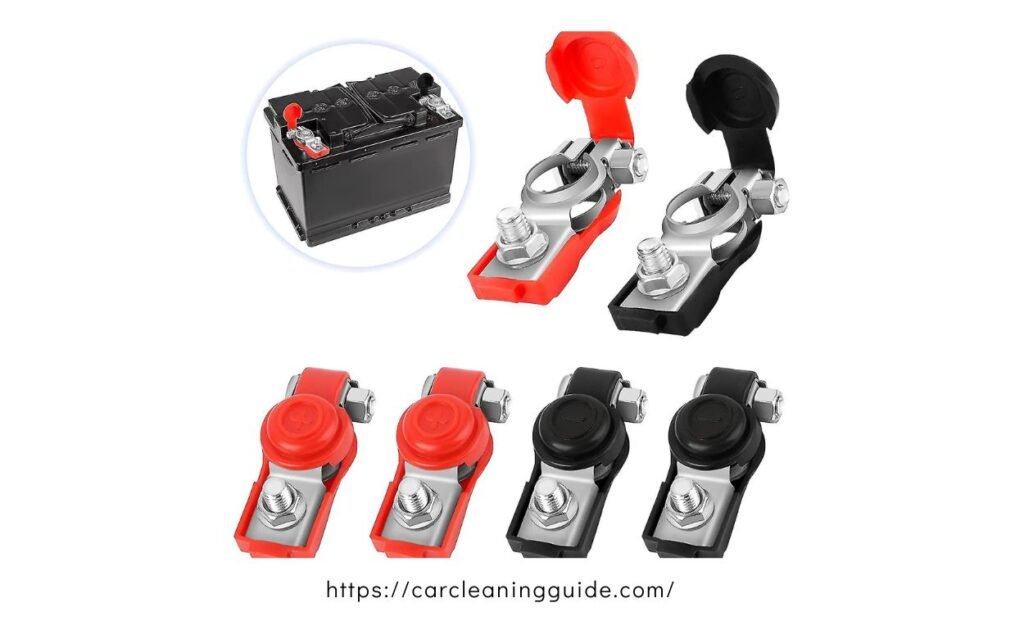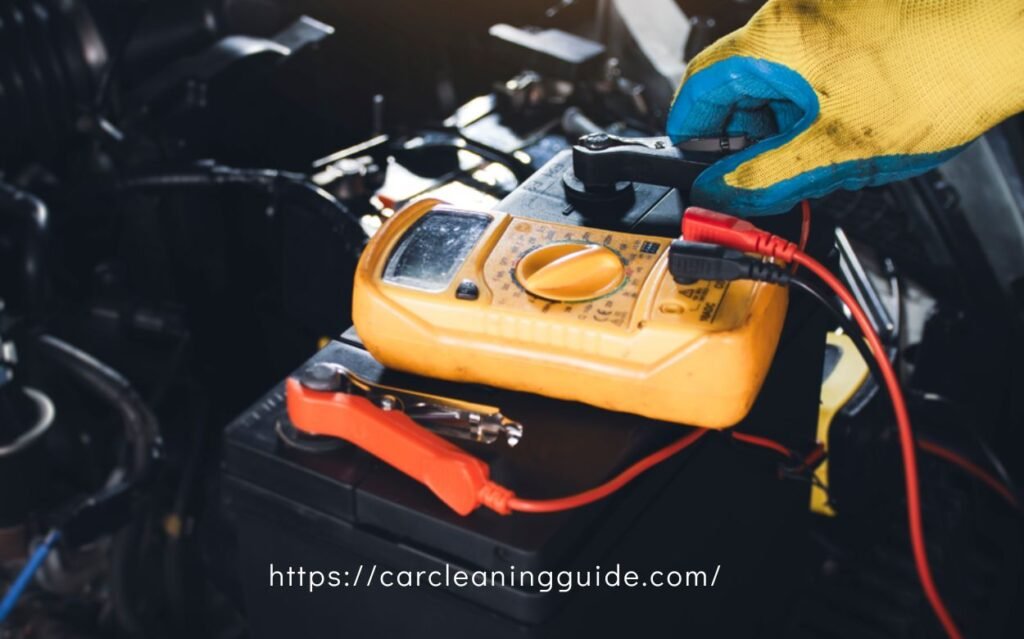
Are you having trouble charging your car battery? Well, car battery problems are one of the most common problems in car ownership. Find out what you can do to fix your car battery. You need to know why it won’t charge anymore. Why won’t my car battery charge?
There can be many reasons why a car battery won’t charge. The battery can be bad or too old. The alternator can be faulty. The belt on the alternator can also be malfunctioning. There will be no charge for this reason.
In this complete guide where we will go into detail about all the reasons why a car battery won’t charge, we will also tell you how to solve your charging problems if you have a new user in your car batteries. If so, I recommend understanding the proper voltage level in a car battery.
6 Reasons My Car Battery Won’t Charge
1. Defective battery
First, we’ll check the battery. Obviously, we have a number of guides here that explain the various problems with car batteries, but we’ll go through all of them here.
- Car batteries don’t live forever they die of old age even if they are well maintained when they reach a certain age the battery loses its capacity and is no longer capable of being charged like a battery. The older it gets, the less it charges.
- Any type of damage destroys the battery’s ability to charge. Corrosion and changes in the electrolyte solution affect the way the battery charges.
- Leaking electrolyte solution can also prevent the battery from being able to charge. Most flat-east batteries can leak when tipped.
- It is very easy to determine if your battery has any of these problems. The best thing to do is to run a test with a multimeter battery tester to check if the battery is charging now. Is it or not?
- All car batteries typically last three to four years, so if your battery gets older than that, you already know what to do. Just inspect the battery and assess if you see any damage or corrosion.
If you can’t find anything by inspecting the battery, you can test with a multimeter.
2. Bad battery terminal

Another problem that can result in poor charging is bad or damaged battery terminals. The terminals are responsible for conducting current, so if there is a problem with the terminals, the current will be interrupted and the battery will not charge.
The most important problem with terminals is corrosion. It can happen to anyone. If caught in time, corrosion may not be so dangerous. If you notice corrosion early, you can clean it up.
Damage to the terminals can also be caused by bad charging. Terminal damage is rare if there are problems with the current and frequent shocks can damage the terminal. Fortunately, most problems with the terminals can be easily fixed, meaning that if caught early, the battery will eventually die if the problem is not fixed in time. Battery efficiency will be reduced.
3. Faulty alternator

Charging problems are not necessarily related to a bad battery, the battery may be fine but the alternator may be faulty. The alternator is responsible for drawing AC current when the engine starts.
When the alternator is switched on the AC current charges the battery, thus charging the car batteries. When the alternator is not working, the current has nothing to think about to charge the battery.
It takes a reliable mechanic to fix problems with the alternator. The alternator is not easily accessible so you can’t really know what the problem is. It could be the belt rectifier or the regulator.
The only thing that is possible and they can do is run a multimeter test with the engine running and check the battery voltage if the battery is fine with the engine off but bad with the engine on then with the alternator on. There is a problem.
4. Power drain
In some cases, both the battery and alternator are working fine but the battery is still not charging as it should be due to the power drain draining the battery even when the vehicle is off.
Check the electronic accessories you have added to your car. Some accessories require a small amount of power, but others have a lot of drain on the battery. Do any of these things work while the vehicle is not running?
The best and easiest way to diagnose this problem is with a multimeter. Turn off all unnecessary electronics and test the battery with the engine running. Add electronics items one by one so you can see where the drain is coming from.
5. Damaged wires
Bad wiring can cause charging problems with the battery. Driving by hand and on bumpy roads can damage the wiring. The wiring may be disconnected and this may cause problems in charging the battery.
In some situations the battery won’t charge at all Another possible scenario could be that the corrosion at the terminal has spread to the wires Check the wires for any loose connections or take your car to a professional mechanic for a checkup.
6. ECU problems
Finally, the biggest problem is that a bad Engine Control Unit (ECU) is responsible for the entire electrical system, so if there is a problem with it, the battery will not charge. Problems with the ECU are not just a result of bad charging, but rather the entire electrical system will go haywire. You will see many errors on your dashboard, the sound system may not work, or other electrical components.
How to fix a car battery that won’t charge?
Once you know what is causing your battery to not charge, you will need to determine if you need to replace your battery. Most batteries die if they are not properly charged for a long period of time. An uncharged battery will start recharging if left for that long.
- First, make sure you have fixed the charging issue. Make sure there are no corroded bad wiring terminal or ECU problems Make sure the battery is not old or damaged.
- Recharge your battery with an external charger. An alternator alone is not enough to restore a flat battery. Recharge with a car battery charger.
- If there are electrical conduits, remove them.
- Run a test on the battery and make sure it is capable of holding a charge. If the battery still doesn’t test well after this, you need to replace it.
Some charging problems that you can solve yourself Cleaning corrosion on battery terminals Changing the battery and connecting the wires is a very simple process, but fixing the alternator and ECU requires an expert and reliable mechanic.
Related Questions and Other Frequently Asked Questions
Can a completely dead battery be recharged?
If the car battery hasn’t been dead for a long time, chances are you can recharge it by removing the battery from the car and charging it with an external car charger. If you have a battery that needs topping, make sure it is topped off before charging. Do not jump-start the vehicle and drive to recharge the battery.
Car battery not charging with jumper-cable
Using jumper cables to recharge a flat battery doesn’t always work. If the jumper cables aren’t strong enough, there won’t be enough power to start the vehicle. A flat battery will take some time before recharging and the battery may not be able to hold a charge.
